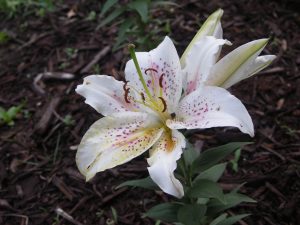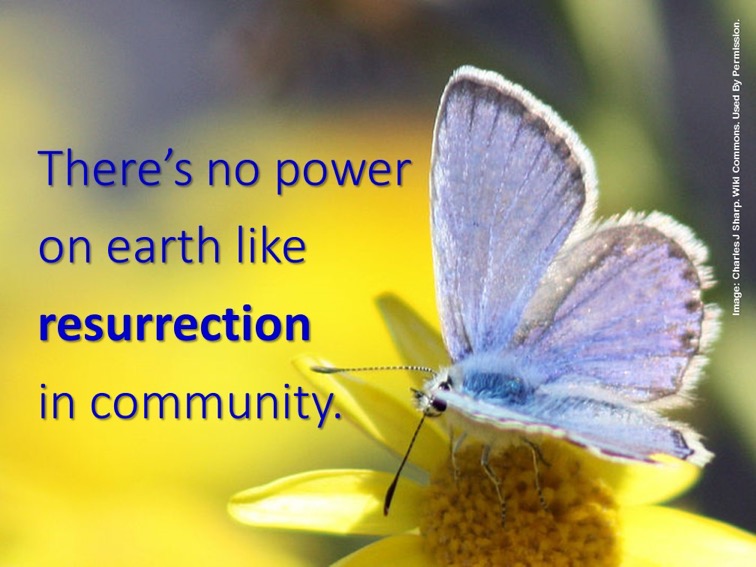By Rowan Wyatt
A few years ago I was fortunate enough to be one of the botanists working to catalogue, store and germinate seeds at the Millenium Seed Bank. We had collections of seeds from remote places worldwide, some rather common seeds and some so very rare it was nerve wracking working with them.
I was one of a small group working with various Orchid seeds, as well as many other types of seed, and our tasks were to clean the collection of any detritus and remove any dead seeds, germinate a small sample using agar and growing them in various conditions to monitor how they grew in each climate. After germination the plants would be grown on in the glasshouses whilst the seeds were catalogued and stored in air tight containers, in a giant walk in freezer set to -35 deg C. The amount of seed in there was staggering. There were over a million collection bottles, each with its own unique charge of seed, and that whole collection a small fraction of the worlds abundant variety.
Germinating the orchid seeds was a difficult job. The conditions had to be spot on, no room for error or the seed would not grow, at all. The other seeds too had to have just the right conditions for growth to happen and I was always filled with joy and wonder when those first points of green began to protrude from the protection of the casing. I always used to think on the parable of the sower when I was at work, let’s take a look at it: –
Parable of the sower Matthew 13: 1-9
Seeds are incredible and wondrous things so it is inspired that Jesus used them so often to describe the word of God and so very dramatically here.
Howard Flint, the vicar at my church, recently suggested in a sermon that the parable of the sower should actually be called the parable of the earth as indeed it is really about the conditions that the seeds, God’s Word, is sown into. I completely concur with him in this and want to stretch things even further by saying the conditions for the earth to receive seed can also be seasonal.
We all go through seasons in our lives, they all very and despite our best intentions our ‘earth’ (spirit/soul) are not always in the best condition for a seed to penetrate and germinate. The smallest of things can cause our ‘earth’ to harden causing the seeds ‘Word’ to bounce away, never to germinate and grow. Jesus explains exactly what is happening here in his explanation of the parable.
As I said above, germinating a seed can be difficult but with the earth prepared in the right way the seed can flourish and grow and importantly bear fruit, in abundance. So in order to receive and let God’s word take root, deep root in us, our earth ‘soul’ needs to be prepared for it and the best we can do that is through prayer and worship.
Here’s a process to think upon: –
- The soul as a patch of earth, brown, tilled and ready to receive the seeded word of God.
- Trial gets in the way, the earth bakes closed, dry and hard, unyielding, the seed is snatched away. Needs the living water to soften it and make it ready once more to receive. Pray & read the word to make the ‘earth’ ready again.
- The patch of earth has not been prepared well, rocks and stones get in the way and the few seeds that take root have no foundations and soon become weak and die. Again, pray, read and worship. Take the Lord in quantity like a draught of quenching fluids on a hot day, drink deep of the living water and rake the stones (distractions/doubts) away.
- The Patch of earth is surrounded on either side by unprepared ground, weeds and thorns all of which invade and unchecked begin to choke the new seedlings till they are no more. Pray, pray and pray again, remove temptation and doubt, cut it back and throw it into the fire.
- The earth ‘soul’ is ready. Tilled, watered and fed, and the sower comes.
- The seed ‘word’ sown in that good, prepared earth takes root.
- Water it with the living water of Christ.
- Let it bask in the light of God.
- Strengthen it as it grows with supports ‘church, fellowship, partnering’.
- Watch as it bears fruit which is shared freely for all, and the seeds can scatter afresh.
In conclusion it becomes obvious that we need to prepare ourselves to receive the word of God. In the parable of the sower, Jesus is quite explicit that we will miss out on that bounty from God if we have not taken the time or effort to prepare our soul, spirit whatever word you choose to use, correctly. Through prayer, reading the Bible, worship (corporately or alone at home, in your quiet place), fellowship and communion our soul can be tilled and made ready to receive. How great it is to share so much with a humble seed.
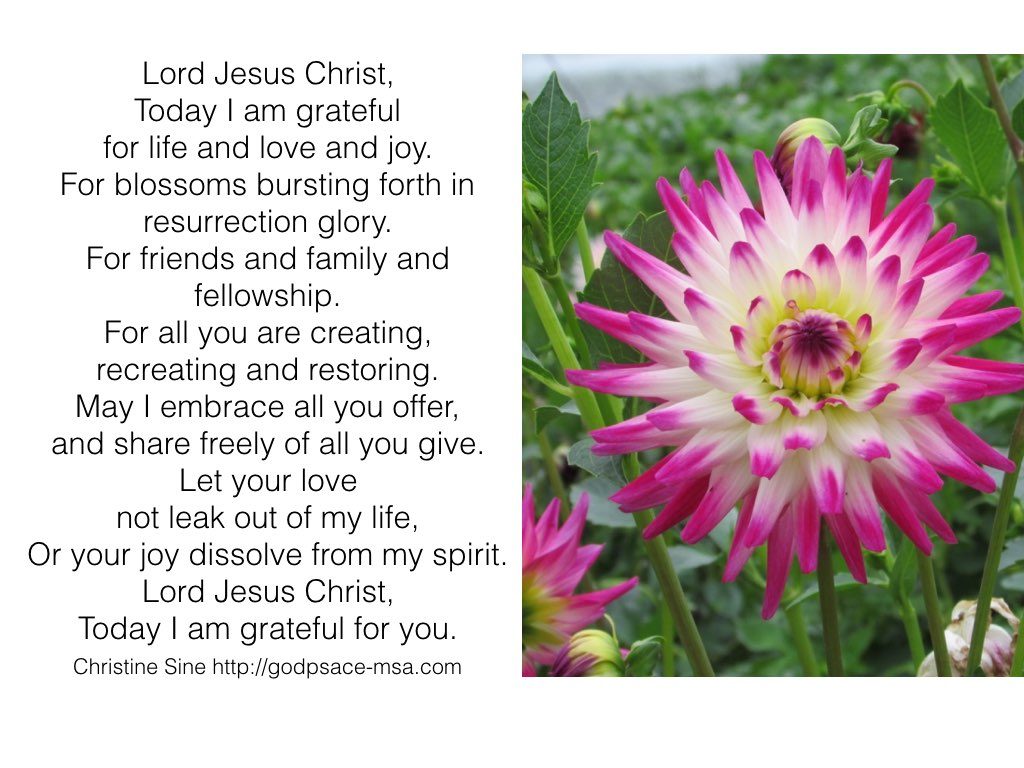 by Christine Sine –
by Christine Sine –
A couple of weeks ago, I was asked to prepare some readings for the Earth Day service at our church next Sunday. It encouraged me to pull out some of my favourite books on creation care, re-watched my favourite videos (like the ones included in this post) and reread some of my favourite quotes including this one:
When the Pharisees told Jesus to silence his disciples, Jesus replied, “I tell you, if these were silent, the stones would shout out” (Luke 19:40) Does creation speak? Can it be heard? Can it be read?
The Christian community has long held that the Scriptures of the old and New Testament are “inspired” by God and the basis for faithful reflection in the church. At the same time, Christian writers have maintained that creation can be read as a text about God and that God has presented us with “two books” – Scripture and the natural world.
From the desert wisdom tradition of the fourth century we read: “A philosopher asked Saint Anthony: Father, how can you be enthusiastic when the comfort of books has been taken from you? He replied: My book, O Philosopher, is the nature of created things, and whenever I want to read the Word of God, it is usually right in front of me.” Augustine wrote, “Others, in order to find God, will read a book. Well, as a matter of fact there is a certain great big book, the book of created nature. Look carefully at it top and bottom, observe it, read it. God did not make letters of ink for you to recognize him in; he set before your eyes all these things he has made. Why look for a louder voice? Heaven and earth cries out to you, “God made me,”…. Observe heaven and earth in a religious spirit.”
Thomas a Kempis likewise suggested, “If you heart is right, then every creature is a mirror of life to you, and a book of holy learning, for these is no creature – no matter how tiny or how lowly – that does not reveal God’s goodness.
And Meister Eckhart wrote: Every single creature is full of God and is a book about God. Every creature is a word of God. (Introducing Evangelical Ecotheology, Daniel Brunner, Jennifer Butler and A. J Swoboda).
What is Your Response?
Watch the video above and read through the quote several times. Sit outside in your favourite garden spot, a local park, or on the beach. Go for a forest walk or visit a local waterfall. Take note of the different textures of leaves and flowers, the colours of petals and dappling of light and shade. Run your hands through the vegetation, crush a leaf and inhale its fragrance. In what ways does God’s second book – creation – speak to you? How does it reveal the goodness of God to you?
What is one practice you could institute in your life to enhance that learning process?
As Earth Day approaches, take time to get out into God’s good creation and contemplate the revelation of God it brings. At the same time, reflect on the impact of climate change and pollution. Here are just a few of the facts:
1. If everyone in the world lived the way people do in the U.S., it would take five Earths to provide enough resources for everyone.
2. 2015 was the world’s hottest year on record.
3. Average global sea level is expected to rise 7 – 23 inches before the end of this century.
4. More than a million species face potential extinction as a result of disappearing habitats, changing ecosystems, and acidifying oceans according to this article from MSNBC.
5. The Arctic region may have its first completely ice-free summer by 2040.
What is Your Response?
These facts overwhelm us, yet there are simple things we can all do, from a car-free day a week to a reduction in meat consumption to decrease our environmental footprint, cut carbon emissions and help reduce the human impact of climate change. Here is a list of 10 simple things all of us can try to be part of the solution.
Prayerfully consider the list. What is one practice you could institute in your life to help reduce environmental impact?
And if you are looking for more resources to help you celebrate Earth Day you might like to check out these posts:
Getting Ready for Earth Day – Some Resources to Consider
Getting Ready for Earth Day – Resources for Kids
Resurrection’s Power Makes Us Truly Unconquerable
“Death, where is your victory?
Death, where is your sting?”
— 1 Corinthians 15:55 (HCSB)
UNDER certain circumstances in life, you, me, and everyone else who abide in a particular power will be unconquerable. And it won’t matter what comes against us, with just one caveat… we must first learn this great power… it cannot simply be known, as in read and understood.
This great power is understood at a deeper level. It’s first and best known as an experience. It cannot just be known at an intellectual level. God loves us so much not to protect us from the opportunity of living this learning. God knows it’s the only way, in this world, that the learning will be meaningful.
Learning this great power necessitates the experience of pain, and the suffering of that pain to the point that it crushes us — that it renders us, for a time, deconstructed. Then, months and years later, for the remaining years of our life, we embark each day integrated with a revenant form of perspective. We live the death of Jesus, and carry it around with us, in order that His resurrection life would be revealed through us (2 Corinthians 4:7-12).
Death, at a spiritual level, no longer encumbers us. As it was for Jesus, it’s not where we remain.
Death no longer has the threat level it did. As we experience grief, we see it as the actualising agent for growth crucial to discipleship.
And not just that. We will have the capacity to endure pain (living the deathly experience) without it being as painful, because our perspective has adjusted our expectation. We no longer expect a pain-free existence. No, we expect pain. We come to expect difficulty in life. It comes with this life. We understand it and accept it. Gratitude becomes us. As does maturity. And we realise its great value; for growth, for peace, for healing, and for being the vehicle we use to enter heaven in our minds — for anticipation of that wondrous day ahead!
I do hope this doesn’t sound like a pipedream to you. It’s in keeping with the promises in the Bible lived out truly in billions of lives in history. I have experienced such things and they have become part of my being, but I don’t write this as any claim except to attest to the mercifully gracious glories of God’s truth:
Jesus’ resurrection becomes real in our life, when we apply the gospel wisdom.
This great and secret power goes counter to the world’s way, and against that grain, for it shows us the one and only unconquerable way, because we go against what seems the only way. The world would rather conquer the pain through myriad forms of anesthetising denial, and remain conquered, all the while pretending it has all the answers. The world cannot understand that pain is a reality that can only be accepted as impetus to victory.
Jesus’ resurrection proves we have a better way. The apostle Paul connects us to His resurrection in 1 Corinthians 15, and when we realise such a truth in our lives, through His power, we’re convinced, convicted, challenged, encouraged, and inspired. We’re motivated toward resurrection experience; the evocation of a miracle.
***
Death necessitates a rise, a raising in resurrection power, if we believe death has a purpose. God has overcome death in Jesus, and He has shown us the way to overcome the horrors of this life — for this life is not all there is — and the horror is not all there is.
We have a hope beyond this life, and that hope reveals to us a hope in and for this life.
Death no longer has victory. Death no longer has victory as we see it defeated in what Jesus does in and through us as we struggle hopefully.
Death has lost its sting. Death has lost its sting when we claim the victory by being hopeful of the Holy Spirit’s resurrecting us at the proper time, as much as we’re thankful when it comes. Because it always does.
But that’s not all…
Resurrection has the fullest power when it manifests in loving community; when we take our victory and make it an asset for others.
There’s no power on earth like resurrection in community. We know what resurrection does in one life. Think of the gestalt when God brings about the power of resurrection in community! Such a community becomes a change-making entity for the Kingdom through His power.
by Tom Sine –
Tonight we will launch Live Like You Give A Damn! Join the Changemaking Celebration at the Inhabit Conference at the Seattle School of Theology and Psychology. Wish you could be with us. Tomorrow, at the conference I will introduce some of those who are already a part of this changemaking celebration.
In this post I want to introduce one of them to you. Brian Jones who heads the Innove’ Project will co-present with me and two other young innovators.
The back story is that several years ago the Colonial church in the Twin Cities area sold some property they owned for $2 million and decided to sponsor free enterprise competitions to make a difference in their community. Here is the “rad part” they invited anyone under 35 in the community to participate without being affiliated to their church or any church.
That first year Leah Driscoll won first place. Leah was deeply concerned that nearly 300,000 thousand of her neighbors live in a “food desert” where they didn’t have access to grocery stores or fresh produce. Leah and her friends launched Twin Cities Mobile Market, designed to serve those in “food deserts” who don’t have access to fresh produce and reasonably priced food. Leaders in the congregation volunteered as coaches and mentors to get these important ventures launched.
“Join me as we visit the Twin Cities Mobile Market and Leah Driscoll, who not only came up with this creative social innovation but has been very busy since the contest launching this innovative venture….This first bus has been transformed into a grocery store on wheels and is busy serving some of the underserved communities in the Twin Cities. Leah is now raising money for a second bus.”
Watch the attached video of Leah on her first bus before it became a successful mobile market serving neighbors before we show it at Inhabit tomorrow. Tomorrow is also the last day to purchase Live Like You Give a Damn: Join the Changemaking Celebration, at our super discount pre-order price.
What would happen if churches in all our communities started inviting the changemaking ideas of the under 35 not only in our churches but in our community as well?
Let us know if your church decides to be this rad or any other examples you have seen of churches anywhere inviting the innovative ideas of the young in our churches or communities to make a difference a real difference in the lives of their neighbors…. We will share your best stories!
By Andy Wade –
When you step outside, taste it in the air tonight, the faintest flavor rushing by, hope is living here. When you walk your street, can you feel it in your feet, the sanctuary sidewalk heat, hope is living here.
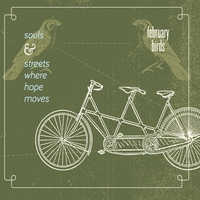 These are the first two lines from “Fierce Hope” by February Birds (a.k.a. Sean and Julie Hall). Sometimes it’s easier to be overwhelmed by the difficulties in our neighborhood than it is to taste hope in the air. And what of sanctuary? It can be easy to assume that all these homes are havens of peace and security, but just a quick glance at domestic statistics makes clear that just isn’t so.
These are the first two lines from “Fierce Hope” by February Birds (a.k.a. Sean and Julie Hall). Sometimes it’s easier to be overwhelmed by the difficulties in our neighborhood than it is to taste hope in the air. And what of sanctuary? It can be easy to assume that all these homes are havens of peace and security, but just a quick glance at domestic statistics makes clear that just isn’t so.
What might it mean to share the flavor of hope and sanctuary in my neighborhood? Jesus did instruct us to love both God and neighbor, but how do I do that? What does loving God and neighbor look like?
This is a question I’ve been asking myself the past couple of years. My yard and my home are my sanctuary. But should they not also be available to those around me? Should I not also be more available to those around me?
As I thought about this I remembered these words from the Apostle John:
“On the last and greatest day of the festival, Jesus stood and said in a loud voice, “Let anyone who is thirsty come to me and drink. Whoever believes in me, as Scripture has said, rivers of living water will flow from within them.” John 7:37-38
Hearing these words, I realized how often I focus on the invitation to “come and drink” but not on what it means to have “living water flow from within”.
What about the way I live is received by those around me as living water?
How might the living waters within be stagnant, stale and on the way to becoming undrinkable?
How might the “water” flowing from me actually be toxic instead of life-giving?
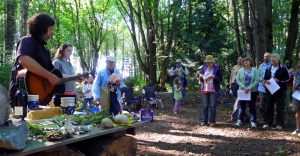 Mustard Seed Associates has 40 wooded acres out on Camano Island in Washington State. Several years ago water was located and a well drilled and tapped, then it was capped off, waiting for the money we needed to have it certified and transformed into a functional source of refreshment.
Mustard Seed Associates has 40 wooded acres out on Camano Island in Washington State. Several years ago water was located and a well drilled and tapped, then it was capped off, waiting for the money we needed to have it certified and transformed into a functional source of refreshment.
This acreage is the location of our annual Celtic Prayer Retreat (this year on August 5-7). Because we haven’t been able to finish the well, we’ve reminded our participants to bring their own water. It seems odd to have such an abundant source of fresh water right there on the property but no way to access it!
The living waters Jesus mentions arise from a bottomless well, but often we cap the well, making it inaccessible to the world around us.
Back in my neighborhood, with these things in mind, I began wondering, what are the refreshing sources of abundance in my yard and home that are freely accessible to our neighbors, and which are capped, inaccessible to those living around me?
 Two years ago we turned our front yard into a garden. Various paths lead from the sidewalk into the yard, inviting neighbors and strangers to wander in, sit on the bench, grab a book from the “Little Free Library”, or pick some herbs from the community herb and sun tea garden. This is a great start! We really can choose how our environment is shaped to either welcome or exclude, to be a well of living water or a well whose water is not available to refresh our neighbors.
Two years ago we turned our front yard into a garden. Various paths lead from the sidewalk into the yard, inviting neighbors and strangers to wander in, sit on the bench, grab a book from the “Little Free Library”, or pick some herbs from the community herb and sun tea garden. This is a great start! We really can choose how our environment is shaped to either welcome or exclude, to be a well of living water or a well whose water is not available to refresh our neighbors.
But Wait, There’s More!
There’s a fountain down, in the center of our town, it’s old and been forgotten now, one day it will rush. It will flood our street, bubble up with heaven’s dreams, care and friendship deep like seeds, hope is living here.
This second verse from February Birds’ “Fierce Hope” takes me deeper into the garden as a source of hospitality, of “friendship deep like seeds”… literally!
As we celebrate the resurrection and discover new ways to practice resurrection, in my garden I noticed all the new volunteer plants springing up: mint, lemon balm, oregano, sage, chives… I know as the weather warms these volunteers will be joined by calendula, bee balm, nasturtiums, borage, and more.
The wheels began to turn! What if I add a table next to the Little Free Library – a kind of little free plant exchange? I know I’m not the only one in the neighborhood with too many volunteers springing to life in the garden! What might happen if we began to share?
Then I thought a bit more… I’ve got around 300 seed starts just now bursting through the surface in carefully planted containers. I always plant more than I need and, because you never know how well seeds will grow, you always plant at least two seeds per container. What if, instead of cutting and discarding the extras, I carefully extracted the extra seed starts and replanted them in another container? What if, rather than discarding my extras, I shared with my neighbors out of my abundance?
Yes, I’m aware that the proper way to start seeds is to choose the strongest and snip off the others, thus protecting the root system of the strongest one. But what if I were to take that chance, maybe even have a weaker beginning to my own garden, in order to share with others? What does it mean to love a sacrificial God and the neighbor in my community? Perhaps it’s not all about getting the best garden ever for myself!
I remember when my wife and I were speaking at a Mennonite Church in South Dakota. Years ago we stayed with retired farmers, and on our way home from Sunday service we passed fields of workers busy with the business of harvesting. Our host commented, “Why do they have to do that on the Sabbath?” My first reaction was, “Oh, how quaint.” But the question stuck with me.
Traditional farmers have bushels of faith. Every little change in weather seems to affect their very livelihood. And yet for so many, Sunday was a day of rest. Rest for the family, rest for the land. This profound act of faith, especially during the height of the harvest, is amazing! It is to trust the “Lord of the Harvest”, the one who commanded the Israelites in the wilderness to only gather enough manna for each day – their daily bread – except on the sixth day to gather enough for the Sabbath day of rest as well.
You can bet that as I carefully extract the extra seedlings from their pots and gently plant them in a new home, I will be remembering these acts of gardening and harvesting faith. Going against conventional wisdom is often the very path of faith. And doing so as a gift to neighbor and stranger seems fitting as I learn to more fully love God and neighbor through simple acts in the garden.
There’s not really a conclusion to this post; it’s a beginning, not an ending. But I hope you’ll take some time to listen to February Birds’ “Fierce Hope”.
As you listen, reflect on your own neighborhood:
- Can you taste the hope?
- Can you see the fountains of living water? The seeds of God’s fierce hope?
- With what you already have, how might you enter into your neighborhood as a garden of refreshment?
This article was first published as “Gardens of Reconciliation” on the Mustard Seed Associates’ blog, but has been reworked and adapted for Godspace.
Wherever Jesus went, there seemed to be a celebration; the tradition of festive meals at which Jesus welcomed all and sundry is one of the most securely established features of almost all recent scholarly portraits.”
N.T. Wright, The Challenge of Jesus, 43.
At MSA we love this image of Jesus, and this is certainly a year of celebration for us! We started the year celebrating Tom Sine’s 80th birthday and now, in conjunction with our favourite Seattle event – the Inhabit conference – we are getting ready to launch his new book, Live Like You Give a Damn! Join the Changemaking Celebration.
 We invite you to join the MSA team -Tom and me, Andy Wade, Katie Metzger, Forrest Inslee and Stefan Schmidt – for the conference this week and for the launch party Friday night. (If you are not in the Seattle area, join the celebrations from afar taking advantage of the special 40% pre-order discount which is still available (last chance is April 16th). Gary and Evelyn Heard, and Mark and Robyn Pierson, long term MSA contributors, are flying in from Australia and New Zealand respectively to join the festivities, and we would love to see you too.
We invite you to join the MSA team -Tom and me, Andy Wade, Katie Metzger, Forrest Inslee and Stefan Schmidt – for the conference this week and for the launch party Friday night. (If you are not in the Seattle area, join the celebrations from afar taking advantage of the special 40% pre-order discount which is still available (last chance is April 16th). Gary and Evelyn Heard, and Mark and Robyn Pierson, long term MSA contributors, are flying in from Australia and New Zealand respectively to join the festivities, and we would love to see you too.
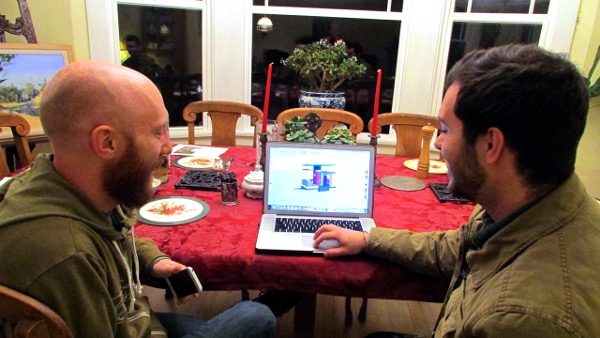 In July we plan to continue the celebrations at the Wild Goose Festival in North Carolina. Tom, Christine, and Andy will present workshops, man the MSA booth, talk about the new book, and enjoy celebrating with friends from around the country. We will be joined by Jensen Roll, a young social entrepreneur who is currently building a tiny house on wheels, which will be a major focus for our talks. It promises to be an exciting event.
In July we plan to continue the celebrations at the Wild Goose Festival in North Carolina. Tom, Christine, and Andy will present workshops, man the MSA booth, talk about the new book, and enjoy celebrating with friends from around the country. We will be joined by Jensen Roll, a young social entrepreneur who is currently building a tiny house on wheels, which will be a major focus for our talks. It promises to be an exciting event.
On August 5-7 our summer celebrations conclude with our 25th Annual Celtic Prayer Retreat. This year’s theme is Celebrating the Goodness of God with All the Saints. We have expanded the program to include a time of celebration and song on Friday evening and a festival of music on Saturday evening.
On Saturday morning we will once again gather for a time of worship, responsive reading and scripture reflection. As always, we’ll share an amazing potluck feast together, and in the afternoon there will be time to walk the prayer trails and labyrinth as well as participate in creative spiritual exercises.
Many of us will camp on the land, but there are plenty of other accommodation options available from B & Bs on Camano to motels in Marysville and Mt. Vernon.
Mark the date on your calendars and join us for a time of fun, fellowship and festivity.
 On Godspace during this Easter season, we are celebrating the resurrection and how we live into Christ’s resurrection world in our daily lives. As Earth Day approaches we are particularly focusing on creation and where we see God’s resurrection glory shine through at this season.
On Godspace during this Easter season, we are celebrating the resurrection and how we live into Christ’s resurrection world in our daily lives. As Earth Day approaches we are particularly focusing on creation and where we see God’s resurrection glory shine through at this season.
Andy Wade launches the series with Resurrection in the Neighbourhood. Visit Godspace this week for revised resource lists and more inspiring thoughts from those who practice resurrection through their faithful and sustainable practices.
And be sure to check out what Tom’s up to over on his new blog, New Changemakers, where he’ll introduce you to new ideas and young people making a real difference in our world today!
How are you celebrating the resurrection of Jesus and living it out in your life? We hope that you too will discover the party spirit of Jesus this year.
God bless,
Christine Sine
Executive Director MSA
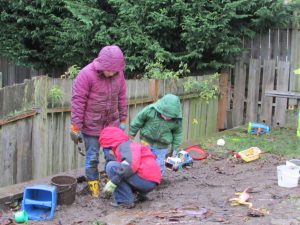 In the last few years, many parents are discovering how wonderful it is to get outside in the garden with their kids. As I have mentioned before, gardening, and interacting with nature is good for our health and well being, especially for that of our kids.
In the last few years, many parents are discovering how wonderful it is to get outside in the garden with their kids. As I have mentioned before, gardening, and interacting with nature is good for our health and well being, especially for that of our kids.
Living near nature dramatically impacts our health and interaction with nature decreases the health gap between rich and poor. Contact with nature helps children to develop cognitive, emotional, and behavioral connections to their nearby social and biophysical environments. Nature experiences are important for encouraging imagination and creativity, cognitive and intellectual development, and social relationships (Read the article). Kids in particular who suffer from nature deficit disorder and attention deficit disorder can have their symptoms alleviated by spending more time outdoors.
For fun worksheets and activities that can be done indoors or outdoors, check out Twinkl’s Earth Day resources.
The Permaculture Research Institute has a great 4 part series on “Getting Kids into Gardening”:
- Creating a Butterfly Garden
- Creating a pizza garden
- Creating a Resilience Garden
- Growing Creativity in the Garden
Edventures with Kids has one of the best list of resources for kids tools, plants to grow and activities to do in the garden that I have come across.
Burpee has a wonderful section for crafts and activities for Kids Gardening.
Curriculum for Children and Gardening
- From Presbyterian Church: Practice just eating
- Jewish Children’s Garden Curriculum is an excellent resource developed by the staff of Shalom Children’s Center at the Asheville Jewish Community Center.
From National Gardening Association
From Container Gardening for kids
- Kids Gardening and “helping young minds grow.”
Ideas for Kids Garden Crafts
A couple of great Earth day videos for kids:
As an Amazon Associate, I receive a small amount for purchases made through appropriate links.
Thank you for supporting Godspace in this way.
When referencing or quoting Godspace Light, please be sure to include the Author (Christine Sine unless otherwise noted), the Title of the article or resource, the Source link where appropriate, and ©Godspacelight.com. Thank you!

